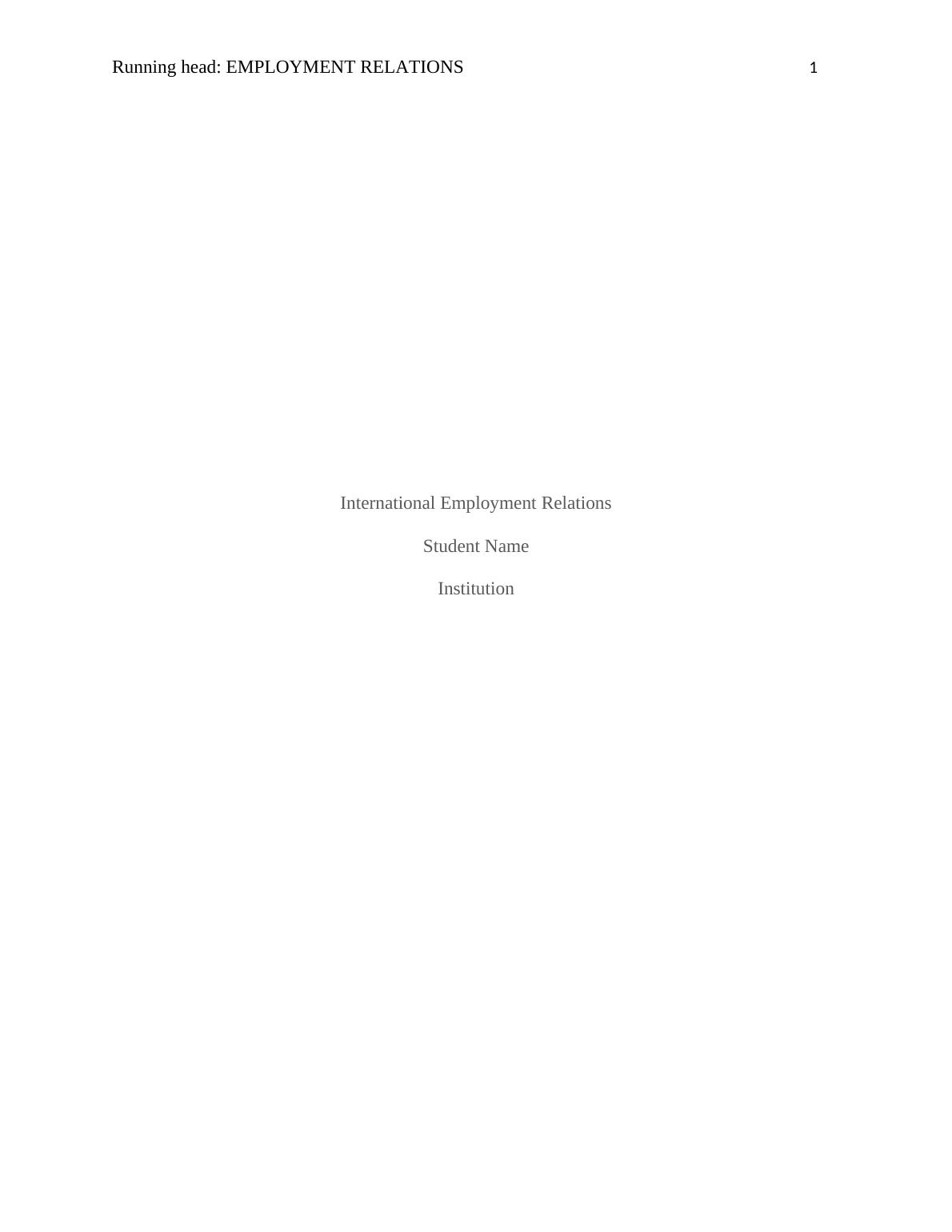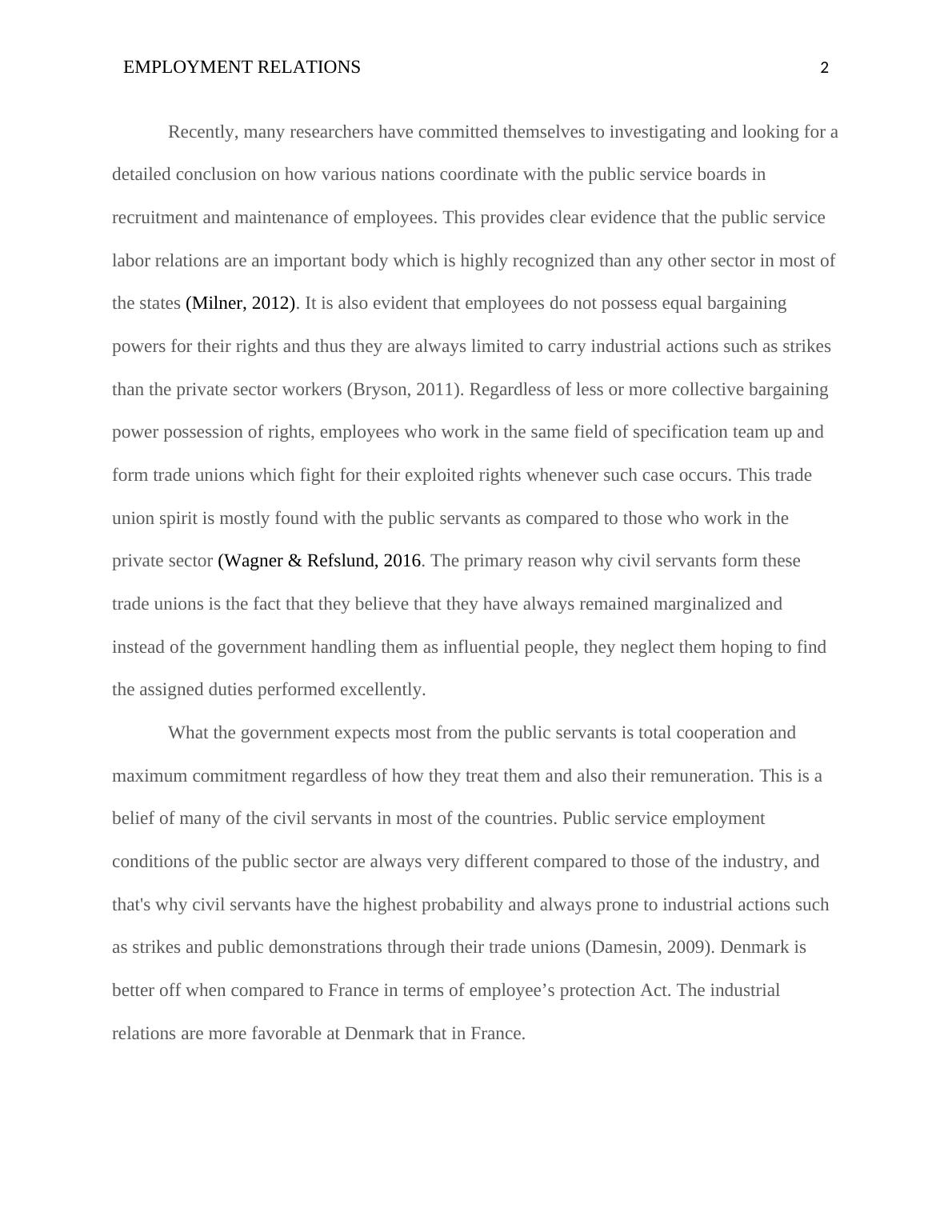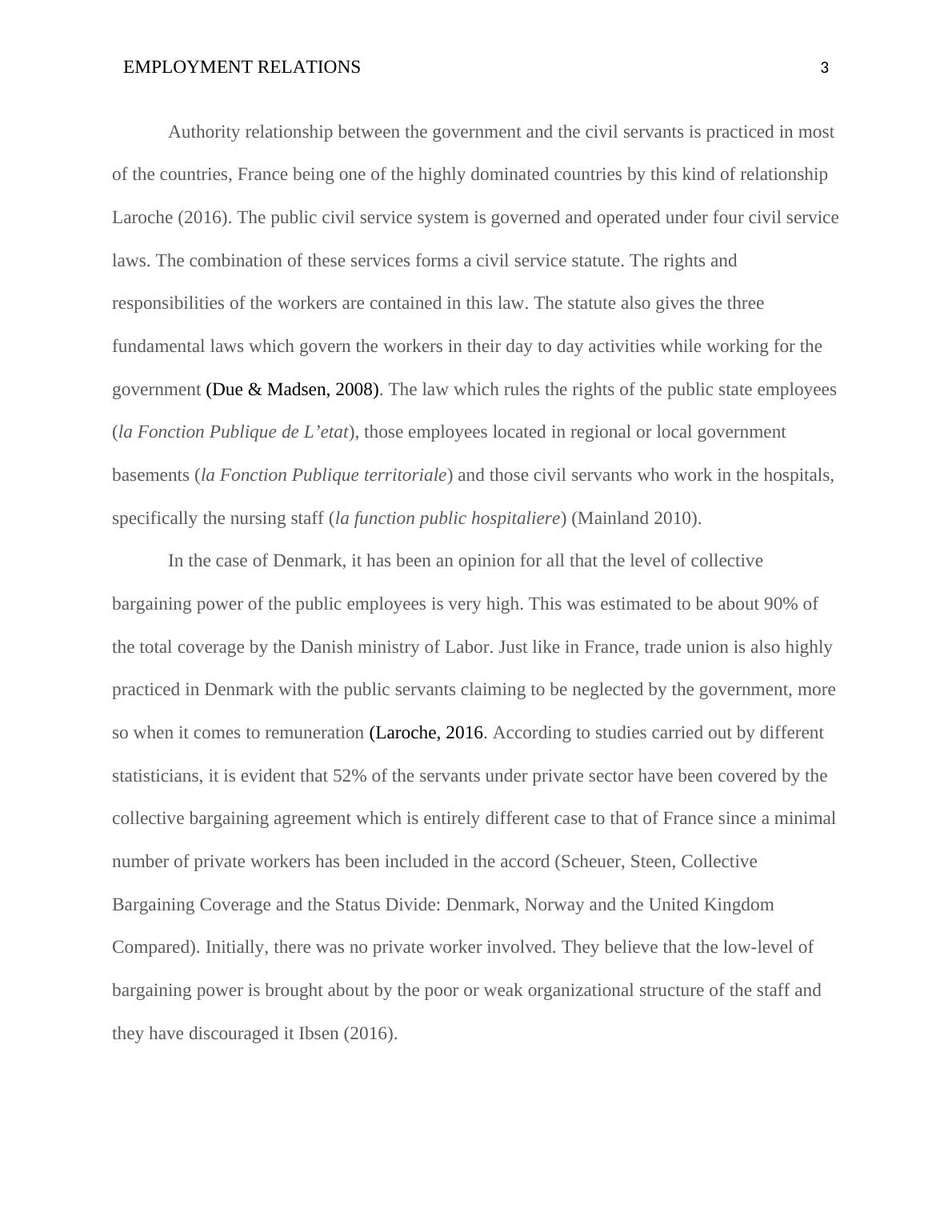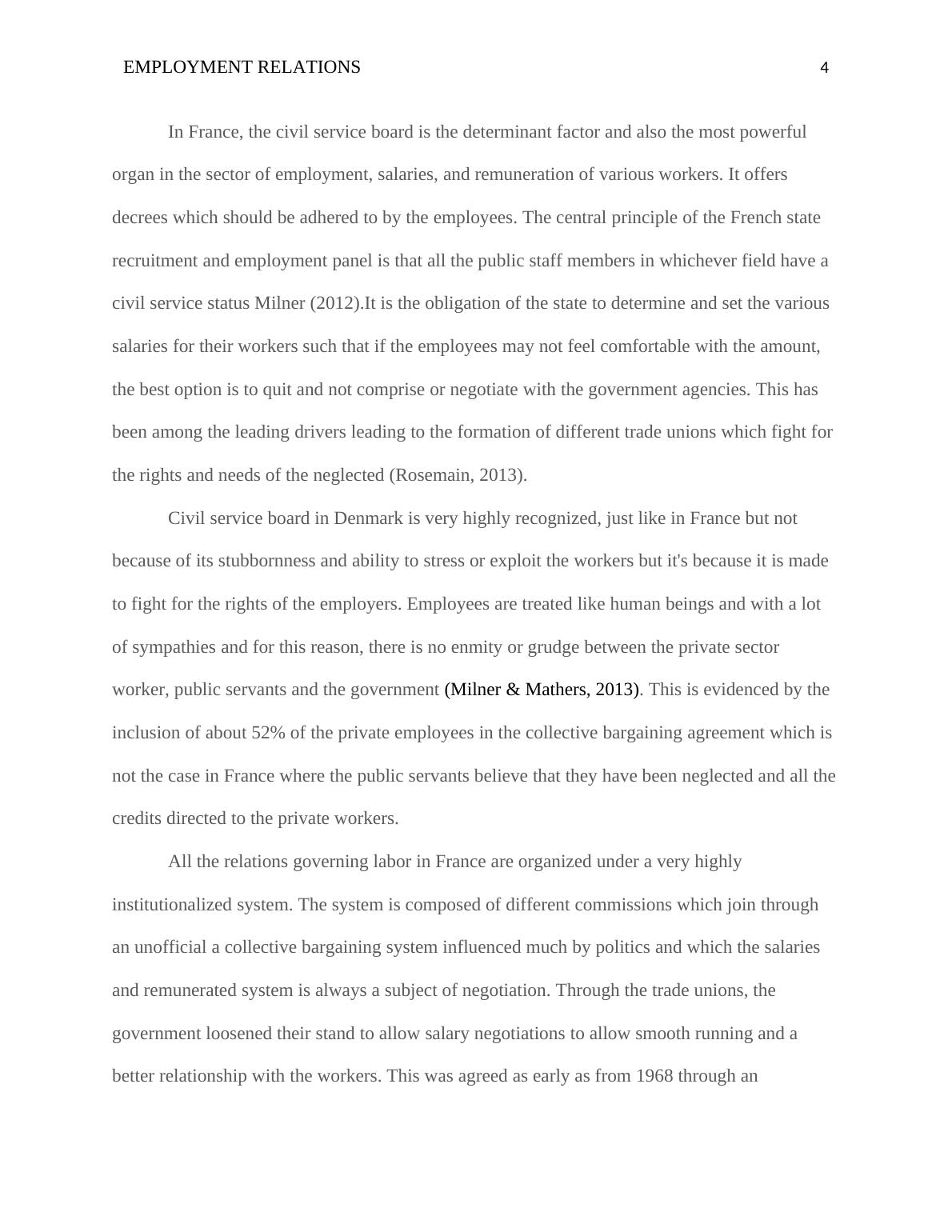HRMT20029 International Employment Relation
Central Queensland University
International Employment Relations (HRMT20029)
Added on 2020-03-04
About This Document
This essay will discuss researchers who have committed themselves to investigate and looking for a detailed conclusion on how various nations coordinate with the public service boards in the recruitment and maintenance of employees. It will also discuss the primary reason why civil servants form these trade unions is the fact that they believe that they have always remained marginalized and instead of the government handling them as influential people. This essay will focus on government expectations, authority relationship between government and civil servants and the Denmark case.
HRMT20029 International Employment Relation
Central Queensland University
International Employment Relations (HRMT20029)
Added on 2020-03-04
End of preview
Want to access all the pages? Upload your documents or become a member.




